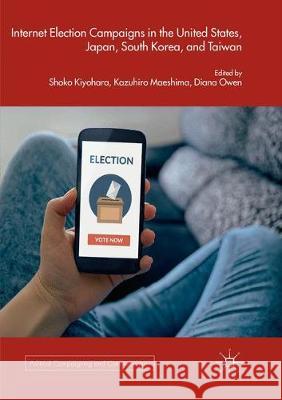Internet Election Campaigns in the United States, Japan, South Korea, and Taiwan » książka
topmenu
Internet Election Campaigns in the United States, Japan, South Korea, and Taiwan
ISBN-13: 9783319876139 / Angielski / Miękka / 2018 / 212 str.
Kategorie BISAC:
Wydawca:
Palgrave MacMillan
Seria wydawnicza:
Język:
Angielski
ISBN-13:
9783319876139
Rok wydania:
2018
Wydanie:
Softcover Repri
Ilość stron:
212
Oprawa:
Miękka
Wolumenów:
01
Dodatkowe informacje:
Wydanie ilustrowane











